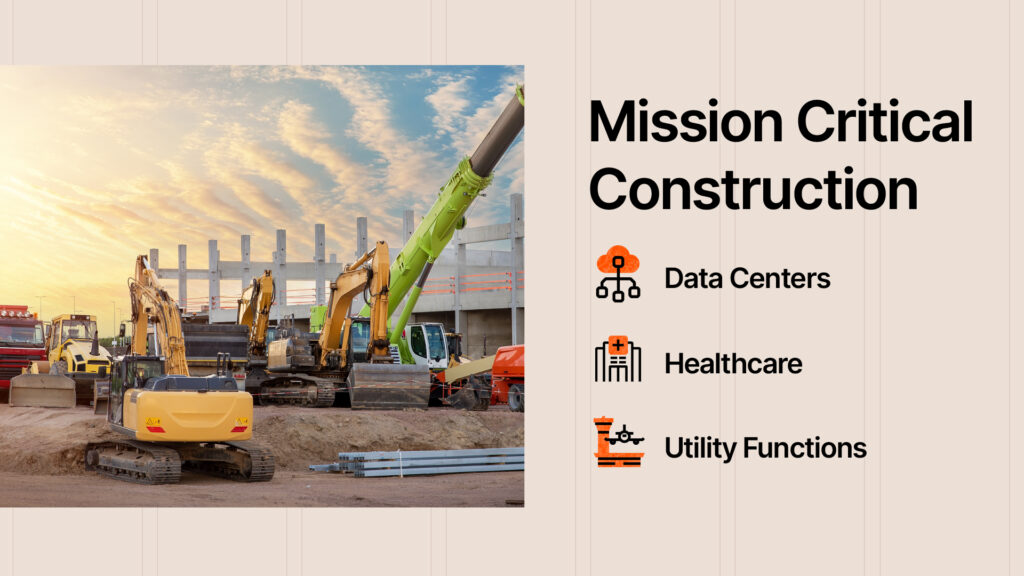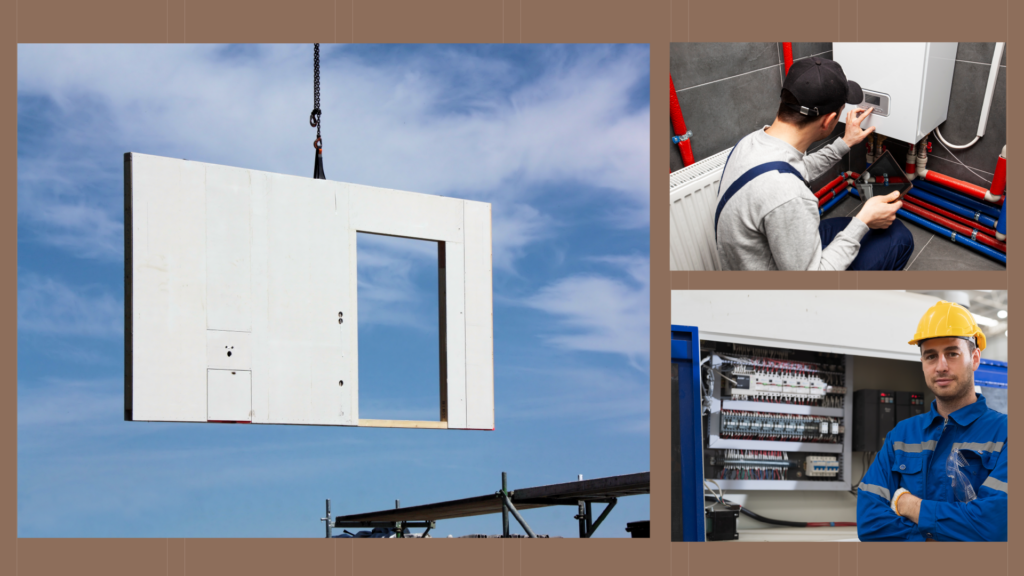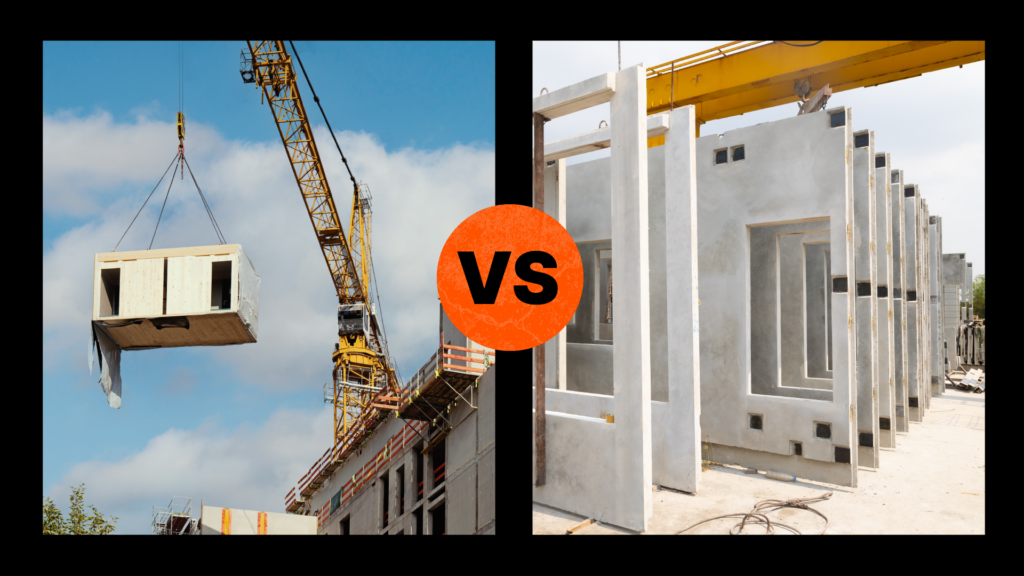— 6 min read
Value-Driven Work: Defining Construction Company Values
Last Updated Feb 3, 2025
Last Updated Feb 3, 2025

A company’s set of values may seem like a far-fetched connection to the day-to-day work on a jobsite, but in reality, a construction company’s values play into every part of a construction job — from the way workers swing a hammer to getting them home on time to help with their kids’ homework.
These values are the guiding principles that shape a construction company's operations, from the way employees interact with one another to the quality of the structures they build.
This article will discuss what it means to create values as a construction company, common values that organizations strive for and how they can help build a healthier construction enterprise.
Table of contents
Why is it important for a construction company to have values?
Values are often associated with individual people: Values are core beliefs that we use to guide actions and behaviors. Even if people don’t give much thought to their values, they have them. For instance, a person who holds honesty as a high moral value will do their best not to lie, even if lying would help them get ahead.
Company values are similar: They are core beliefs that help steer everyday actions and decisions. Since companies are made up of many people who may each hold different values, company leadership should be intentional about setting and publicizing the company values so that all employees can act accordingly.
Core values — such as safety, integrity, quality, teamwork and sustainability — help define a company's identity and influence its reputation in a competitive market by cultivating a positive and forward-driving culture. When widely adopted across a construction company, values guide decision-making so that employees can act as a more cohesive unit. This alignment builds trust with clients and partners, which is important for establishing long-term relationships and securing repeat business.
Further, values emphasize the importance of sticking to protocols, which can make or break a construction firm in an industry where operations depend on safety and regulatory compliance.
The values of a construction company can vary widely, but some might include quality, accountability and respect. For example, Bechtel’s website lists some of its values as adaptability, integrity and diversity, whereas Fluor lists safety, integrity, teamwork and excellence.
Whatever a construction company’s leadership team defines as its values, those ideals work to create cohesive and unified action across teams, holding each employee to the same standards.
Examples of Construction Company Values
Safety
Having safety as a value may mean giving extra priority to the safety of everyone on a construction job site. Priorities may include PPE enforcement, higher training standards and careful adherence to safety protocols.
Integrity
Construction firms that value integrity behave with transparency and honesty, striving for ethical interactions with partners, partners and employees.
Quality
Valuing quality means putting quality workmanship at the top of the list of priorities, as the structures the firm builds meet or exceed quality and specification standards.
Customer Satisfaction
Teams who value customer satisfaction might work especially hard to communicate and build strong relationships with industry partners.
Teamwork
Collaboration and cooperation among stakeholders help teams get many diverse and valuable perspectives for more quality outcomes.
Continuous Improvement
Construction teams who value improvement work to upskill employees, provide many training opportunities and are open to innovation in an effort to improve project outcomes.
Defining the Values of a Construction Company
Writing and promoting the ethical principles that will guide the company is no easy task. All values sound great when listed out in a row. The key is to find the most important ones for that company. Teamwork is certainly a positive trait, but a construction company may value excellence most of all, leading individuals to drive toward skills building and leadership training. Listing the most important values will steer each activity accordingly.
For example, if a company’s values dictate quality and excellence, the team will be driven to better attention to detail and efficiency. A team whose values include innovation might create a culture that’s more open to trying new solutions.
Here are some steps construction firms can take in defining their company values.
1. Engage the whole team.
Involve all levels of the company structure in determining a company’s values. Ask managers, employees and the executive team what they feel the top values should be. Include as many diverse voices as possible to take many experiences into consideration.
2. Align with the mission and vision.
Mission and vision statements are common concepts in company leadership. Values should fit in well with the other driving statements the company has adopted. If a mission statement is to better the community by building quality structures that improve the lives of residents, values should help contribute to those ideals.
3. Communicate and implement the values.
Values are no good to anyone if they sit stagnant on a computer file. Instead, they should be promoted, actively discussed and regularly revisited to make sure they still align with the direction the company is taking.
In construction, it’s equally important that owners, subcontractors, materials suppliers and any other industry partners are aware of the company’s values so that they know what to expect and can act as part of the team.
Applying Values to Everyday Work
Once the company has established values, they should remain top-of-mind for all staff and partners, from the executive branch to on-site labor.
On-site Practices
Values can be used on the jobsite to direct decisions and actions. Consider a construction company whose values are centered around safety and quality. On-site, the superintendent and each task team would consider safety protocols first and foremost. The culture would invite ideas on improving safety as employees strove toward better safety records. Those values might lead to the initiation of daily safety meetings and strict enforcement of PPE use. The team would also prioritize quality control checks and employee training and skills development for the best project outcomes.
Project Management
Project managers use values to guide resource allocation, timelines and stakeholder communication. For instance, in a company driven by integrity, the team strives to provide realistic timelines and budgets instead of bidding low and relying on change orders and vague scope definitions to increase payments later on. Project managers may choose vendors and subcontractors based on ethical standards or fair selection metrics like experience and output rather than on kickbacks or cronyism.
Client and Community Relations
Values influence interactions with clients and the local community. Companies that prioritize transparency, respect, and sustainability build positive relationships with stakeholders. Engaging with the community through outreach programs and sustainable practices demonstrates a commitment to social responsibility.
Courses about construction.
For construction.
Unlock your career potential with our free educational courses on Health & Safety, Data in Construction, and more.
Values should steer company practices.
Values are not a one-and-done operation — to be effective, values have to be revisited and revised as a company grows and evolves. When done right, values help a construction firm operate as a cohesive unit and drive activities from site preparation to materials sourcing.
Defining and applying values helps construction firms achieve operational excellence and build positive reputations by guiding everyday activities across the organization. Construction companies can use values to create strong cultures, guide ethical decision-making and build trust with clients and partners.
Was this article helpful?
Thank you for your submission.
0%
0%
You voted that this article was . Was this a mistake? If so, change your vote here.
Scroll less, learn more about construction.
Subscribe to The Blueprint, Procore’s construction newsletter, to get content from industry experts delivered straight to your inbox.
By clicking this button, you agree to our Privacy Notice and Terms of Service.
Categories:
Tags:
Written by
Kristen Frisa
67 articles
Kristen Frisa is a contributing writer for Procore. She also contributes to a variety of industry publications as a freelance writer focused on finance and construction technology. Kristen holds a Bachelor of Arts in Philosophy and History from Western University, with a post-graduate certificate in journalism from Sheridan College. She lives in Ontario, Canada.
View profileExplore more helpful resources

Mission Critical Construction: Strategies for Success
Mission critical construction involves building structures whose functions cannot afford to fail, as any disruptions can lead to significant consequences for society. Keeping data centers, hospitals, power plants and other...

Modular Construction and MEP: A Collaborative Pairing
In an age of supply chain disruptions, workforce shortages, and rising material costs, off-site construction — including modular construction methods and prefabricated materials — is surfacing as a multipurpose solution....

Connected Construction: Transforming the Industry Through Integration
Construction projects are becoming increasingly complex, so companies need to innovate to accurately and profitably complete these modern structures. Connected construction — using technology and data to improve communication, processes...

Off-Site Construction: Prefab vs. Modular
As the construction world becomes ever more competitive, deadlines get tighter and the margin for error gets slimmer, project owners around the world are always looking for an edge. Thanks...